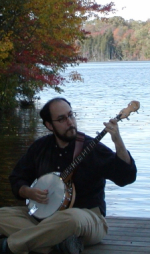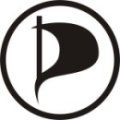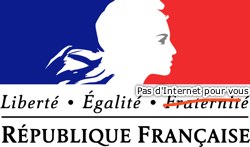Cease and Desist Censorship
A US court has found that copyright law can cover “cease-and-desist letters”, that is, letters sent by copyright holders telling someone to stop distributing copyrighted content.
Cease-and-desist letters are frequently used as tools of censorship (as Chilling Effects has ably documented). A common scenario is that someone gets upset at having something of theirs quoted, and is able to shut down the quotation by claiming copyright over its text and then sending C&D letters to anyone who displays it. The quoted text is not royalty-generating for the copyright holder (not that it would excuse censorship even if it were); rather, the sender of the C&D is simply using copyright law as a tool to prevent the publication of potentially embarrassing information — that is, to censor.
The recipients of C&D letters often don’t have the legal resources to fight them, but they at least can cause publicity problems for the sender by posting the letters. “Look, Global MegaCorp is trying to force us to stop posting their research papers, in which their own scientists determine that their products kill kittens. Read their letter here!” And by drawing attention to the attempted censorship, these organizations are sometimes able to raise enough resources to fight the C&D order in a legal arena.
But now a lawyer who sends C&D letters has persuaded a judge that the texts of the letters themselves can be copyrighted, and therefore recipients can be enjoined from displaying them publicly.
That’s right: they can censor you, and then they get to censor your ability to talk about the exact way in which you’ve been censored. Lovely, isn’t it?
The fundamental problem here is copyright law’s promiscuous tendency to assign a monopoly-empowered owner to every snippet of text (or music, or video) out there, no matter what the consequences to society. As far as the law goes, the judge’s reasoning may well be sound. I’m not a lawyer, but his finding (Case No. MS-07-6236-EJL-MHW) actually seems to make sense within the crazy framework of copyright law:
Under the DMCA, the copyright holder need only plead a prima facie case of copyright infringement. In re: Verizon Internet Servs., Inc., 257 F. Supp. 2d 244, 263 (D.D.C. 2003). A certificate of registration of a copyright constitutes prima facie evidence of the validity of the copyright and facts stated in the certificate. 17 U.S.C. Section 410(c). Melaleuca has registered the Sheppard Letter with the Copyright Office. See Supplemental Filing Re: Copyright Registration Certificate for Sheppard Letter, Ex. 1 (Docket No. 18-2). This is prima facie evidence that the Sheppard Letter is copyrighted and satisfies the first prong of demonstrating a prima facie case of copyright infringement. 43SB has valid arguments and enforcing this subpoena pre-litigation may have far-reaching consequences, therefore some preliminary examination of the potential claim is necessary. However, the Court will not go into an in-depth analysis of the merits of a copyright infringement claim in determining whether to quash this subpoena. It is sufficient in this instance that Melaleuca has registered the Sheppard Letter with the Copyright Office.
The party seeking a subpoena must also make a prima facie showing of copying of constituent elements of the work that are original. See In re: Verizon Servs., Inc., 257 F. Supp. 2d 244, 263 (D.D.C. 2003). The entire Sheppard Letter was posted on the Website by user “d2.” This suffices to show a copying of constituent elements of the work that are original by user “d2.” Therefore, the Court finds that all the elements necessary for a subpoena to issue under 17 U.S.C. Section 512(h), including the notification requirements of section 512(c)(3)(A) and the prima facie case, have been satisfied for user “d2.” The Court recommends that the motion to quash with respect to “d2” be denied.
(I think the full text of the decision is here, which I found via a link from this summary at the Internet Library of Law and Court Decisions. Note that the principal issue seems actually be a motion to quash a subpoena seeking the identity of a comment poster, and the finding of copyrightability of the C&D letter is merely part of that decision. However, I am not a lawyer, and would appreciate any comments lawyers might have on the structure of this decision and its effectiveness as precedent.)
What’s interesting about the whole situation (aside from its obvious irony) is the implication that at least some senders of C&D letters know that there’s something shameful in what they’re doing. At least, they are clearly aware that the public will perceive them as attempting to bully their targets into silence. It’s a rare acknowledgement from the copyright industry (or at least from John W. Dozier, Jr., the lawyer who started this) that the public understands how copyright law is used to censor — for otherwise, why object to cease-and-desist letters being displayed? If they thought their requests were reasonable, they wouldn’t mind them being made public.
The question now is how to get more people to understand that not only is it censorship when you get a C&D letter for posting memos (or C&D letters), it’s also censorship when you’re not allowed to translate a book you like, or are prohibited from making a derivative work without the approval of the author of the original work.
[See also articles about this case at Techdirt and Slashdot.]







